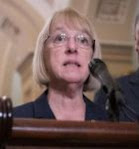This year, anti-gun Washington Legislators continued their crusade of undermining the Second Amendment and defying the precedent established in the Bruen decision. While this session saw the passage of numerous anti-gun measures, it was not without its victories as well. Thanks to the calls and emails from NRA Members and Second Amendment supporters, a number of equally bad measures were thankfully defeated.
Please contact Governor Jay Inslee and respectfully ask him to veto the below anti-gun measures.
Bills Passed and Awaiting Governor Jay Inslee’s Consideration:
House Bill 1903 further victimizes otherwise law-abiding gun owners and places the liability on crime victims for theft of their own property by penalizing failing to report missing or stolen firearms within 24 hours.
House Bill 2021 expands the authorized and/or required destruction of firearms acquired from gun buyback programs held by state and local government entities.
House Bill 2118, the "FFL-Killer" bill, places onerous requirements on Washington-based FFLs and will put many out of business because of the financial burden to comply. Any FFL that does more than $1,000 of sales per year must run annual background checks on their employees, carry $1 million liability insurance, install steel doors or bars at the business, and meet onerous requirements for storage and security systems with 24-hour audio and video surveillance.
Senate Bill 5444 expands “sensitive places” where law-abiding citizens may no longer open carry in these publicly accessible areas - public transportation areas, libraries, zoos and aquariums. Nothing in the bill requires these “sensitive places” have any measures to protect citizens and prevent armed criminals from ignoring this arbitrary boundary and entering, such as metal detectors, security guards, or a police presence. Concealed Pistol License holders may still lawfully conceal carry their firearms in these locations.
Senate Bill 5985 codifies the unconstitutional provisions of Washington’s recent ban on commonly owned firearms into the section of state code on background checks.
Bills Defeated During Session:
House Bill 1902 would have required individuals obtain a permit with live-fire training to be able to exercise the right to purchase firearms.
House Bill 2054 would have rationed Second Amendment rights by limiting firearm dealers from transferring or selling more than one firearm per 30-day period to an individual.
House Bill 2238 would have created an additional 11% excise tax on the sale or transfer of ammunition.
Senate Bill 5963 would have required an individual who owns a firearm to obtain residential insurance as a homeowner or a renter.





